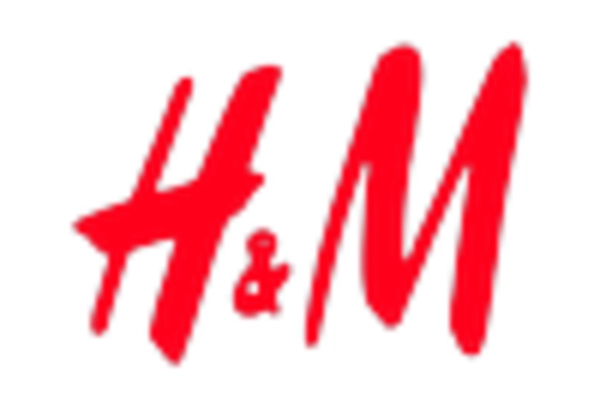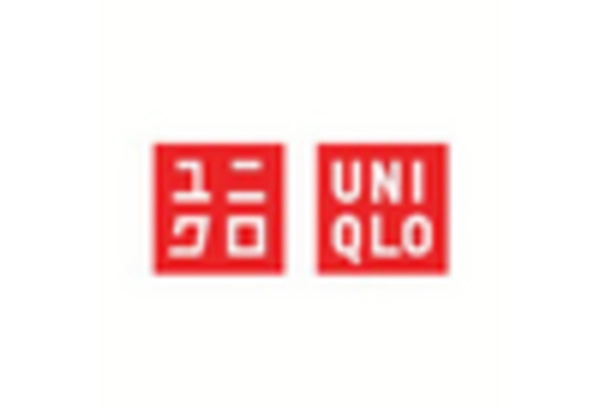Rise of Casual Wear
The menswear market in the UK is experiencing a notable shift towards casual wear, driven by changing lifestyle preferences. As more individuals adopt remote working and flexible dress codes, the demand for comfortable yet stylish clothing has surged. This trend is reflected in the sales data, which indicates that casual menswear has seen an increase of approximately 25% in the last year alone. Retailers are responding by expanding their offerings in this segment, which includes items such as joggers, casual shirts, and versatile footwear. The menswear market is thus adapting to these evolving consumer needs, suggesting a long-term shift in purchasing behavior that prioritizes comfort without sacrificing style.
Influence of Social Media
Social media platforms are playing a pivotal role in shaping consumer preferences within the menswear market. Influencers and fashion bloggers are increasingly promoting menswear brands, leading to heightened visibility and engagement. Data shows that brands leveraging social media marketing have experienced a growth rate of around 30% in customer acquisition. This trend indicates that the menswear market is becoming more reliant on digital platforms for brand promotion and consumer interaction. As a result, companies are investing in targeted advertising and collaborations with influencers to enhance their reach and appeal to younger demographics, thereby reshaping the competitive landscape.
Sustainability Initiatives
Sustainability initiatives are becoming a crucial driver in the menswear market, as consumers increasingly prioritize eco-friendly products. Brands that adopt sustainable practices, such as using organic materials and ethical manufacturing processes, are witnessing a rise in consumer loyalty. Recent surveys indicate that approximately 60% of UK consumers are willing to pay a premium for sustainable menswear options. This shift is prompting traditional retailers to rethink their supply chains and product offerings, thereby influencing the overall dynamics of the menswear market. As sustainability becomes a core value for many consumers, brands that fail to adapt may find themselves at a competitive disadvantage.
Technological Advancements in Retail
Technological advancements are significantly impacting the menswear market, particularly through innovations in retail experiences. The integration of augmented reality (AR) and virtual fitting rooms is enhancing the shopping experience, allowing consumers to visualize how garments will fit before making a purchase. This technology is expected to reduce return rates, which currently stand at around 30% for online apparel purchases. As retailers adopt these technologies, they are likely to attract a tech-savvy consumer base, thereby driving sales growth. The menswear market is thus evolving, with technology playing a central role in shaping consumer interactions and expectations.
Economic Factors and Consumer Spending
Economic factors are influencing the menswear market, particularly in relation to consumer spending patterns. With the UK economy showing signs of recovery, disposable income levels are gradually increasing, which may lead to higher expenditure on clothing. Recent reports suggest that menswear sales could grow by approximately 15% over the next year as consumers feel more confident in their financial situations. This potential increase in spending is prompting brands to enhance their product lines and marketing strategies to capture the attention of a more affluent consumer base. The menswear market is thus poised for growth, driven by economic optimism and changing consumer behaviors.
















